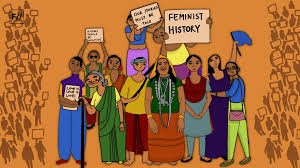Ahmed Qazi
The Renaissance was a period of significant change and upheaval in Europe, affecting all aspects of individual and collective life. In terms of individual life, the Renaissance saw a renewed interest in classical learning and culture, which led to a flowering of art, literature, and science. This led to a new sense of individualism and self-expression, as people began to see themselves as more than cogs in the machine of society.
In terms of collective life, the Renaissance saw the rise of a new middle class made up of merchants, artisans, and professionals. This new class had more money and leisure time than the peasantry and began demanding a more significant say in government. This led to several political revolutions, such as the English Civil War and the French Revolution.
The Renaissance also saw the rise of new ideas about religion and science. The Catholic Church had been the dominant force in European life for centuries, but people began questioning the Church’s authority during the Renaissance. This led to the Protestant Reformation, which split Christianity into two significant branches: Protestantism and Catholicism.
The Renaissance also saw the development of new technologies, such as the printing press and the compass. These technologies helped spread new ideas and knowledge throughout Europe and made it easier for people to travel and trade.
The Renaissance was a period of significant change and upheaval in Europe. It profoundly impacted all aspects of individual and collective life, and it helped lay the foundations for the modern world.
Here are some specific examples of how the Renaissance affected individual and collective life:
- Individual life:
- The Renaissance saw a renewed interest in classical learning and culture, which led to a flowering of art, literature, and science. This led to a new sense of individualism and self-expression, as people began to see themselves as more than cogs in the machine of society.
- For example, the Italian artist Leonardo da Vinci was a true Renaissance man, excelling in various fields, including painting, sculpture, engineering, and anatomy. His work helped to redefine the way people thought about art and science.
- Another example is the English author William Shakespeare, who is widely considered to be one of the greatest writers in the English language. His plays explored the human condition in a way that had never been done before, and they continue to be performed and enjoyed today.
Collective life:
- The Renaissance saw the rise of a new middle class made up of merchants, artisans, and professionals. This new class had more money and leisure time than the peasantry and began demanding a more significant say in government. This led to several political revolutions, such as the English Civil War and the French Revolution.
- For example, the English Civil War was fought between the forces of King Charles I and the Parliamentarians. The Parliamentarians eventually won, and they established a republic in England. This was a significant turning point in English history, and it helped to pave the way for the modern democratic system.
- The French Revolution was even more radical than the English Civil War. The revolutionaries overthrew the monarchy and established a republic. They also declared the human rights of the citizen, which was based on the principles of liberty, equality, and fraternity. The French Revolution had a profound impact on the rest of Europe, and it helped to spread the ideas of democracy and liberty throughout the continent.
The Renaissance was a time of significant change and upheaval, but it also laid the foundations for the modern world. It was a time of renewed interest in classical learning and culture, which led to a flowering of art, literature, and science. It was also a time of political and social upheaval as people demanded a more significant say in government. The Renaissance helped create the modern world, and its legacy continues today.
Likewise, there is a need for Renaissance in Pakistan. However, it requires that our society’s original cultural, social and religious values get transformed. Pakistan needs innovation, reforms and a renaissance.
















